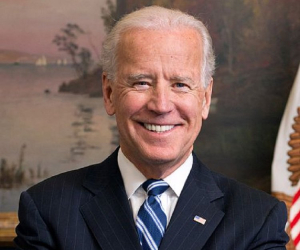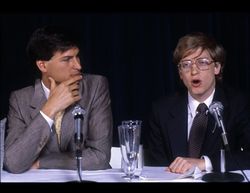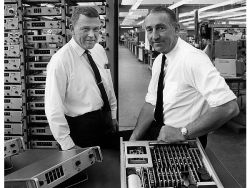
What was almost-jokingly called his “Cancer Moonshot” by President Obama during his State of the Union speech is already yielding significant results. As someone with a family history of cancer – almost everyone is – I also have a stake in this.
The Cancer Moonshot does have real similarities to the Apollo program. It is mission oriented, focused solely on finding cures for cancer. It forces companies to cooperate with one another as the price of funding. It has a single, easy to understand goal, that of doubling the progress toward cures by 2020. And it has the ultimate government priority.
Just as the Cold War helped create our technology industry, with funding to build markets for semiconductors, integrated circuits and the Internet itself, so for the first time civilian necessity is creating the Next Big Thing.
That Next Big Thing, the industry that will replace computer technology as the driver of the economy in my children’s age, is treating DNA as a computer language. There are already a lot of companies trying to do this, or claiming to do this, and it’s impossible at this time to predict which will be the Apple, or the Cromemco, of the new age.
When looking for that company, I advise investors not to seek an outfit with a drug, but one with a method. A company like Illumina, which went public in 2000 and is now worth over $25 billion, could be the next Microsoft, or it could be the next Digital Research.

This environment existed in 1976 as well. Investors plunged into the companies that seemed to be leading the way, companies that were scaled to do it, companies like Hewlett-Packard, Intel and IBM. Their view was based on the history of their time. They bought into those companies that were contributing to the winning of the Cold War.
The age that followed – my time — has been different. It has been consumer-focused. It has been, for the most part, unregulated. This explains why Theranos got so much capital over the last few years, despite its secrecy, so reminiscent of Apple at its most controlling. Their CEO was young and even wore black turtlenecks, the venture guys thought – this has got to work!
Sorry. It’s not that easy. This is proven by Apple’s own story.
What the Apple II had right was the paradigm of modern computing – a tape recorder for storage, a TV for output, a keyboard for input. Paradigms matter. Earlier PCs, like the MITS Altair, didn’t have this. They used switches and oscilloscopes. They were not intuitive. The Apple II was, and the paradigm was copied so completely, by so many, that within a year no one could conceive of things working any other way.

Apple’s evolution took a full generation. It was the work of a lifetime to create its “instant” success.
Meanwhile, if you owned Apple stock you took a wild ride. Do you know the shares traded no higher in 1996 than they had in 1986? The people who replaced Jobs did well for a few years. They even paid out dividends. But without vision, companies as well as people perish, and neither John Sculley nor his successors had one.
It was Apple’s example that let Elizabeth Holmes get away with so much at Theranos. She had a vision, she had the look, she had big claims. Now she has what she claims is a revolutionary machine, the minilab, but she lacks credibility. The story’s not over, but it doesn’t look good.
Theranos’ story will be repeated many times over the next decades. It can be difficult to tell the difference between a visionary and a con. This is especially true in a complex area like biotech.
And this is where we circle back to the Moonshot.

I think it likely that the new era is going to be defined in this “Republican” way, under government control. The technology that now dominates our lives needs mass markets, markets where anything goes and the consumer is in charge.
The technology of the future can’t be that way. Genetic engineering is too dangerous to be placed in the hands of ordinary consumers. Biotech requires the discipline, mission orientation, and regular funding that the Cancer Moonshot provides.
Maintaining focus is essential to America’s technology leadership for the next generation. The next Apple is going to be more of a Hewlett-Packard than anyone now knows.










